-Samuel Adams, speech at the Philadelphia State House, August 1, 1776
"Freedom is that instant between when someone tells you to do something and when you decide how to respond."
-Dr. Jeffrey Borenstein
"I tell you I must go! Do you think I can stay to become nothing to you? Do you think I am an automaton?-a machine without feelings? And can bear to have my morsel of bread snatched from my lips, and my drop of living water dashed from my cup? Do you think, because I am poor, obscure, plain, and little, I am soulless and heartless? You think wrong!"
-Charlotte Bronte, Jane Eyre
I had crossed de line of which I had so long been dreaming. I was free; but dere was no one to welcome me to de land of freedom. I was a stranger in a strange land . . .
-Harriet Tubman, In "Harriet Tubman: The Moses of Her People," by Sarah H. Bradford, 1886.
We were treated to lunch at the clinic. We actually were given something different. It was really good. It was somewhat like a crepe. I did not try the white yogurt. I was afraid that it might make me sick.

I mentioned a few days ago about how the interpreter donates $50.00 a month to a bank account of a young girl that, like Nazia, also went through a very bad experience. The interpreter was able to give me her name and I was able to do a little research and find her story. I provided an article of her story with some pictures and a YouTube link to a short documentary video clip on her story. Thankfully there is a happy ending. Let's all try and also give Nazia a happy ending as well.
-

-
Brutal torture of Afghan girl sold as bride aged 4
By Tom Coghlan in Kabul Published: 15 April 2006 http://news.independent.co.uk/world/asia/article357770.ece
-By Tom Coghlan in Kabul Published: 15 April 2006 http://news.independent.co.uk/world/asia/article357770.ece
The suffering of Gulsoma's first 12 years is not immediately apparent in the little girl with an open face, who is doted on at Kabul's Women's Affairs Ministry. But in repose her features cloud and she clasps her arms around herself, while the over lapping scars on her body offer a crude account of abuse. She was married at the age of four into a family where she was treated as a slave, beaten with electric cables, stoned, her limbs broken with an axe handle, starved, burned and doused with boiling water. Once she was used as a human table top. She says her father-in-law tortured her further by literally rubbing salt into her wounds, an experience so painful she says she asked God to let her die.

Gulsoma, now 13, is one of the first young girls to be rescued by Afghanistan's Women's Affairs Ministry, which was established after the fall of the Taliban government as a first step to improving the lot of women in one of the world's most unequal societies. But cruelty to children comes to light rarely. As well as her scars, Gulsoma walks with a limp, has limited use of one arm and has a large bald patch at the back of her head where boiling water has scarred her. But the culture that allowed her abuse is all too familiar in southern Afghanistan.

Gulsoma, now 13, is one of the first young girls to be rescued by Afghanistan's Women's Affairs Ministry, which was established after the fall of the Taliban government as a first step to improving the lot of women in one of the world's most unequal societies. But cruelty to children comes to light rarely. As well as her scars, Gulsoma walks with a limp, has limited use of one arm and has a large bald patch at the back of her head where boiling water has scarred her. But the culture that allowed her abuse is all too familiar in southern Afghanistan.
-
Gulsoma says that her earliest memory is being married to a neighbor's son at the age of four. The groom, Abdullah, was three. "I remember the green clothes I wore," she says quietly, clinging to the waist of the Independent's photographer. "I don't remember if I was happy or not."
Gulsoma says that her earliest memory is being married to a neighbor's son at the age of four. The groom, Abdullah, was three. "I remember the green clothes I wore," she says quietly, clinging to the waist of the Independent's photographer. "I don't remember if I was happy or not."
-
Her father owned a small shop in a village near Kandahar, deep in the lawless, ultra-conservative Pashtun belt of southern Afghanistan where the Taliban insurgency persists. The social code of Pashtunwali dominates in the region. It is a culture of loyalty to kin and courtesy to guests, but also a code where family matters are private and the threat of violence offsets the lack of central government control. As chattels women can be bought and sold, are never seen outside the home without a burkha, rarely educated and prevented from contact with men beyond immediate family.
-When Gulsoma's father was killed by a landmine her mother's prospects were bleak. Widows are rarely allowed to remarry outside their husband's family. Many end up on the street. Kabul is home to around 50,000 impoverished or destitute widows. Gulsoma's mother was lucky to find a new husband, but the man didn't want a daughter. So at four years old she was sold in marriage for 3 million afghani to a neighbour, a school janitor called Juma Gul, to become the wife of the man's three-year-old son. Her value at that time was roughly £40.
-
Such child marriages remain a feature of Afghan customary practice, particularly in the south. Within a year her mother had left for Pakistan and she was being used as a slave by her husband's family and forced to live and sleep on an old carpet in the yard. In the winter the desert air grew bitterly cold. Today Gulsoma says that she often finds herself shivering involuntarily when night falls.
-"Once I fell asleep when I was washing clothes," she recalls. "They woke me by pouring boiling water over me from a tea urn." She was beaten for any perceived failure with sticks or electric flex. Her father-in-law encouraged his children to throw stones at her. The family stopped feeding her, except left-over scraps. When she was forced to lie down as an improvised table top she says her father used a knife to cut food on her back. In 2000, she made an attempt to escape. But when she found her way to a Taliban checkpoint they beat her, telling her she had brought disgrace on her family, and returned her.
But last year, Gulsoma felt she no longer had a choice. A watch went missing and she was blamed. "I swore on the Koran that I did not take it," she says. "But my father-in-law beat me the whole day with an axe handle. He told me if the watch was not returned he would kill me in the morning." Before dawn Gulsoma escaped the compound and hid under a rickshaw. When the driver took her to the police they were appalled by her condition and confronted her husband's family. When neighbors confirmed the story the police beat Juma Gul savagely in front of Gulsoma. "I cried when I saw that," she says, "because it reminded me of my own beatings."
Juma Gul spent less than a year in prison. Gulsoma was transferred first to an orphanage in Kandahar and then to Kabul. She has begun school for the first time, where her teachers describe her as a highly intelligent student. She lives in an orphanage where she has many friends. However, her father-in-law still owns her and is looking for her. Under Pashtunwali women have no right of divorce. If she were to marry another man her father-in-law's family would be honor-bound to kill both. Her chances of employment are slim."
Here is a link to a YouTube documentary on her story:
-While I was doing research I also found this list of restrictions that were imposed on women during the period of the Taliban. I thought that it was very insightful. It makes you feel good reading this knowing that we are here helping to prevent these rules from being imposed. We still have a lot more work to do but there definitely has been a lot of progress.
-
-
Taliban restrictions and mistreatment of women include the:
1- Complete ban on women's work outside the home, which also applies to female teachers, engineers and most professionals. Only a few female doctors and nurses are allowed to work in some hospitals in Kabul.
2- Complete ban on women's activity outside the home unless accompanied by a mahram (close male relative such as a father, brother or husband).
3- Ban on women dealing with male shopkeepers.
4- Ban on women being treated by male doctors.
5- Ban on women studying at schools, universities or any other educational institution. (Taliban have converted girls' schools into religious seminaries.)
6- Requirement that women wear a long veil (Burqa), which covers them from head to toe.
7- Whipping, beating and verbal abuse of women not clothed in accordance with Taliban rules, or of women unaccompanied by a mahram.
8- Whipping of women in public for having non-covered ankles.
9- Public stoning of women accused of having sex outside marriage. (A number of lovers are stoned to death under this rule).
10- Ban on the use of cosmetics. (Many women with painted nails have had fingers cut off).
11- Ban on women talking or shaking hands with non-mahram males.
12- Ban on women laughing loudly. (No stranger should hear a woman's voice).
13- Ban on women wearing high heel shoes, which would produce sound while walking. (A man must not hear a woman's footsteps.)
14- Ban on women riding in a taxi without a mahram.
15- Ban on women's presence in radio, television or public gatherings of any kind.
16- Ban on women playing sports or entering a sport center or club.
17- Ban on women riding bicycles or motorcycles, even with their mahrams.
18- Ban on women's wearing brightly colored clothes. In Taliban terms, these are "sexually attracting colors."
19- Ban on women gathering for festive occasions such as the Eids, or for any recreational purpose.
20- Ban on women washing clothes next to rivers or in a public place.
21- Modification of all place names including the word "women." For example, "women's garden" has been renamed "spring garden".
22- Ban on women appearing on the balconies of their apartments or houses.
23- Compulsory painting of all windows, so women can not be seen from outside their homes.
24- Ban on male tailors taking women's measurements or sewing women's clothes.
25- Ban on female public baths.
26- Ban on males and females traveling on the same bus. Public buses have now been designated "males only" (or "females only").
27- Ban on flared (wide) pant-legs, even under a burqa.
28- Ban on the photographing or filming of women.
29- Ban on women's pictures printed in newspapers and books, or hung on the walls of houses and shops.
1- Complete ban on women's work outside the home, which also applies to female teachers, engineers and most professionals. Only a few female doctors and nurses are allowed to work in some hospitals in Kabul.
2- Complete ban on women's activity outside the home unless accompanied by a mahram (close male relative such as a father, brother or husband).
3- Ban on women dealing with male shopkeepers.
4- Ban on women being treated by male doctors.
5- Ban on women studying at schools, universities or any other educational institution. (Taliban have converted girls' schools into religious seminaries.)
6- Requirement that women wear a long veil (Burqa), which covers them from head to toe.
7- Whipping, beating and verbal abuse of women not clothed in accordance with Taliban rules, or of women unaccompanied by a mahram.
8- Whipping of women in public for having non-covered ankles.
9- Public stoning of women accused of having sex outside marriage. (A number of lovers are stoned to death under this rule).
10- Ban on the use of cosmetics. (Many women with painted nails have had fingers cut off).
11- Ban on women talking or shaking hands with non-mahram males.
12- Ban on women laughing loudly. (No stranger should hear a woman's voice).
13- Ban on women wearing high heel shoes, which would produce sound while walking. (A man must not hear a woman's footsteps.)
14- Ban on women riding in a taxi without a mahram.
15- Ban on women's presence in radio, television or public gatherings of any kind.
16- Ban on women playing sports or entering a sport center or club.
17- Ban on women riding bicycles or motorcycles, even with their mahrams.
18- Ban on women's wearing brightly colored clothes. In Taliban terms, these are "sexually attracting colors."
19- Ban on women gathering for festive occasions such as the Eids, or for any recreational purpose.
20- Ban on women washing clothes next to rivers or in a public place.
21- Modification of all place names including the word "women." For example, "women's garden" has been renamed "spring garden".
22- Ban on women appearing on the balconies of their apartments or houses.
23- Compulsory painting of all windows, so women can not be seen from outside their homes.
24- Ban on male tailors taking women's measurements or sewing women's clothes.
25- Ban on female public baths.
26- Ban on males and females traveling on the same bus. Public buses have now been designated "males only" (or "females only").
27- Ban on flared (wide) pant-legs, even under a burqa.
28- Ban on the photographing or filming of women.
29- Ban on women's pictures printed in newspapers and books, or hung on the walls of houses and shops.
Apart from the above restrictions on women, the Taliban has:
- Banned listening to music, not only for women but men as well.
- Banned the watching of movies, television and videos, for everyone.
- Banned celebrating the traditional new year (Nowroz) on March 21. The Taliban has proclaimed the holiday un-Islamic.
- Disavowed Labor Day (May 1st), because it is deemed a "communist" holiday.
- Ordered that all people with non-Islamic names change them to Islamic ones.
- Forced haircuts upon Afghan youth.
- Ordered that men wear Islamic clothes and a cap.
- Ordered that men not shave or trim their beards, which should grow long enough to protrude from a fist clasped at the point of the chin.
- Ordered that all people attend prayers in mosques five times daily.
- Banned the keeping of pigeons and playing with the birds, describing it as un-Islamic. The violators will be imprisoned and the birds shall be killed. The kite flying has also been stopped.
- Ordered all onlookers, while encouraging the sportsmen, to chant Allah-o-Akbar (God is great) and refrain from clapping.
- Ban on certain games including kite flying which is "un-Islamic" according to Taliban.
- Anyone who carries objectionable literature will be executed.
- Anyone who converts from Islam to any other religion will be executed.
- All boy students must wear turbans. They say "No turban, no education".
- Non-Muslim minorities must distinct badge or stitch a yellow cloth onto their dress to be differentiated from the majority Muslim population. Just like what did Nazis with Jews.
- Banned the use of the internet by both ordinary Afghans and foreigners.
- Banned listening to music, not only for women but men as well.
- Banned the watching of movies, television and videos, for everyone.
- Banned celebrating the traditional new year (Nowroz) on March 21. The Taliban has proclaimed the holiday un-Islamic.
- Disavowed Labor Day (May 1st), because it is deemed a "communist" holiday.
- Ordered that all people with non-Islamic names change them to Islamic ones.
- Forced haircuts upon Afghan youth.
- Ordered that men wear Islamic clothes and a cap.
- Ordered that men not shave or trim their beards, which should grow long enough to protrude from a fist clasped at the point of the chin.
- Ordered that all people attend prayers in mosques five times daily.
- Banned the keeping of pigeons and playing with the birds, describing it as un-Islamic. The violators will be imprisoned and the birds shall be killed. The kite flying has also been stopped.
- Ordered all onlookers, while encouraging the sportsmen, to chant Allah-o-Akbar (God is great) and refrain from clapping.
- Ban on certain games including kite flying which is "un-Islamic" according to Taliban.
- Anyone who carries objectionable literature will be executed.
- Anyone who converts from Islam to any other religion will be executed.
- All boy students must wear turbans. They say "No turban, no education".
- Non-Muslim minorities must distinct badge or stitch a yellow cloth onto their dress to be differentiated from the majority Muslim population. Just like what did Nazis with Jews.
- Banned the use of the internet by both ordinary Afghans and foreigners.
Thanks for reading.





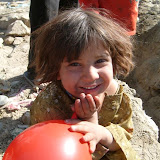
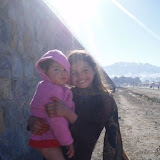
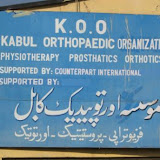
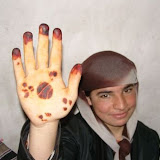
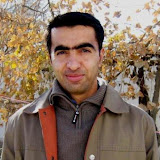
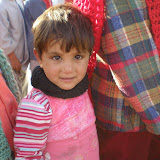

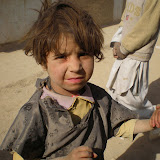

No comments:
Post a Comment